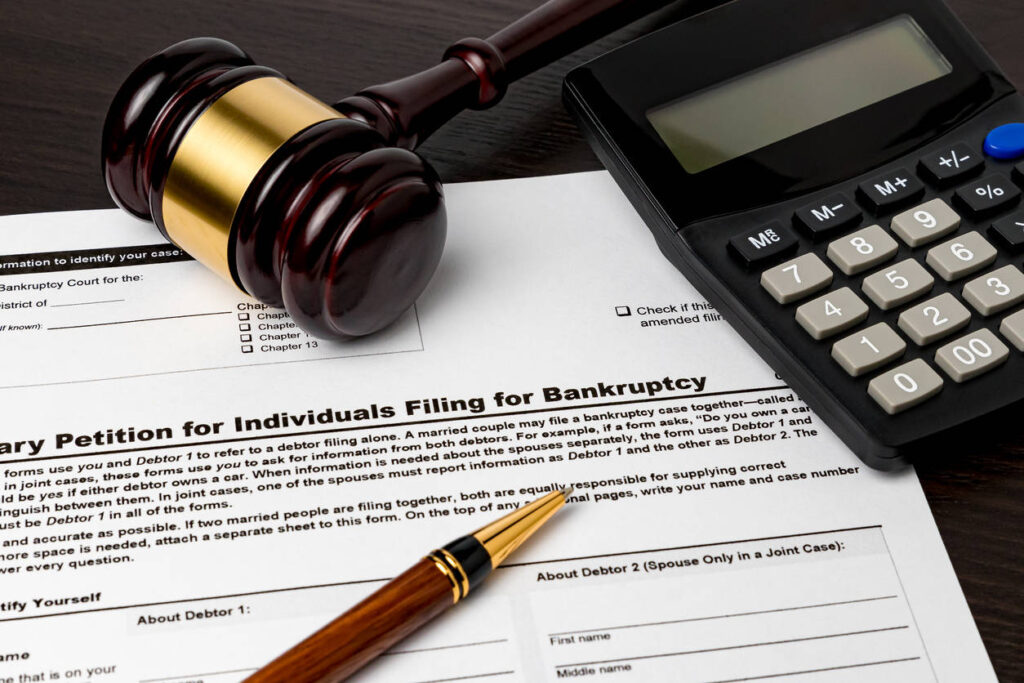Steps needed prior to filing a bankruptcy case
April 25, 2021
Today’s post is the first of a new series entitled Bankruptcy Basics in which I will go through various topics to give you an overview of the bankruptcy process. In the first few parts of this series, my goal is to give you a general idea of what is involved in filing and completing a bankruptcy case, and future blogs will go into more details.
I often find that clients are very nervous about meeting with an attorney, and their meeting with me is the first time they have ever been to an attorney’s office and going through a bankruptcy case is their first time to appear in a courtroom or in front of a judge. Understandably, they are worried about being in “trouble” or “going to jail.” From my point of view as an attorney, most clients are good and honest people who have financial difficulties through no fault of their own, such as accumulating medical bills due to illness or being laid off from work, or perhaps have made some financial mistakes in the past. Filing a bankruptcy case is a legal right that can be very useful in eliminating a part or all of debts and can provide a way to restructure debts and in many cases allow someone to keep their home, vehicles, and other important assets.
Every case is different and how bankruptcy can work for you depends on your income and the amount and types of debts you have. However, there are many aspects of a bankruptcy filing that will apply to virtually all cases. The following steps are needed in preparing to file a bankruptcy case:
Initial Consultation
- Fill out some forms with basic information – contact information and provide general information about types and amounts of debts (i.e., do you have a mortgage, vehicle debt, credit cards, medical bills, tax debt?)
- Meet with the attorney to discuss details of your situation – the debts owed and what is causing the most problems, such as lawsuit/garnishment, pending foreclosure or vehicle repossession, credit cards, etc.
- Determine which bankruptcy chapter will work best for you
Complete Credit Counseling
- A course that is required by law for all individuals to take within 180 days prior to a bankruptcy case being filed. A corporate entity does not have to complete this course.
- The credit counseling company issues a certificate to you that states the date your course was completed, and the certificate should be filed with the court when your case is filed.
- Credit counseling provides disclosures to you about the differences between Chapter 7 and Chapter 13 (the two most common types of bankruptcies filed by individuals) and goes over a budget with you. It usually takes about an hour to complete the course.
Gather Paperwork
You will need to have in most Chapter 7 and Chapter 13 cases:
- Your bills such as recent credit card statements, loan statements, or medical bills
- Last 2 years of tax returns (if you are required to file returns)
- Last 6 months of pay stubs or other proof of income
- Last 3 months of bank statements
- Other documents or information may be needed depending on your circumstances, and if you are filing Chapter 11 or Chapter 12, usually more details on your financial history will be required.
You are ready to get your case filed! See Part 2 of Bankruptcy Basics coming up soon.
Filing a bankruptcy case is complicated, and you need an experienced bankruptcy attorney to help guide you through this process. Kimberly S. Ward has been representing people just like you for nearly 20 years in bankruptcy cases.
Call 912-764-9616 or contact me at info@kswardlaw.com to schedule your Free Consultation.
Make the first step toward financial freedom!
We are a debt relief agency. We help people file for bankruptcy relief under the Bankruptcy Code. We provide federal debt restructuring help.
